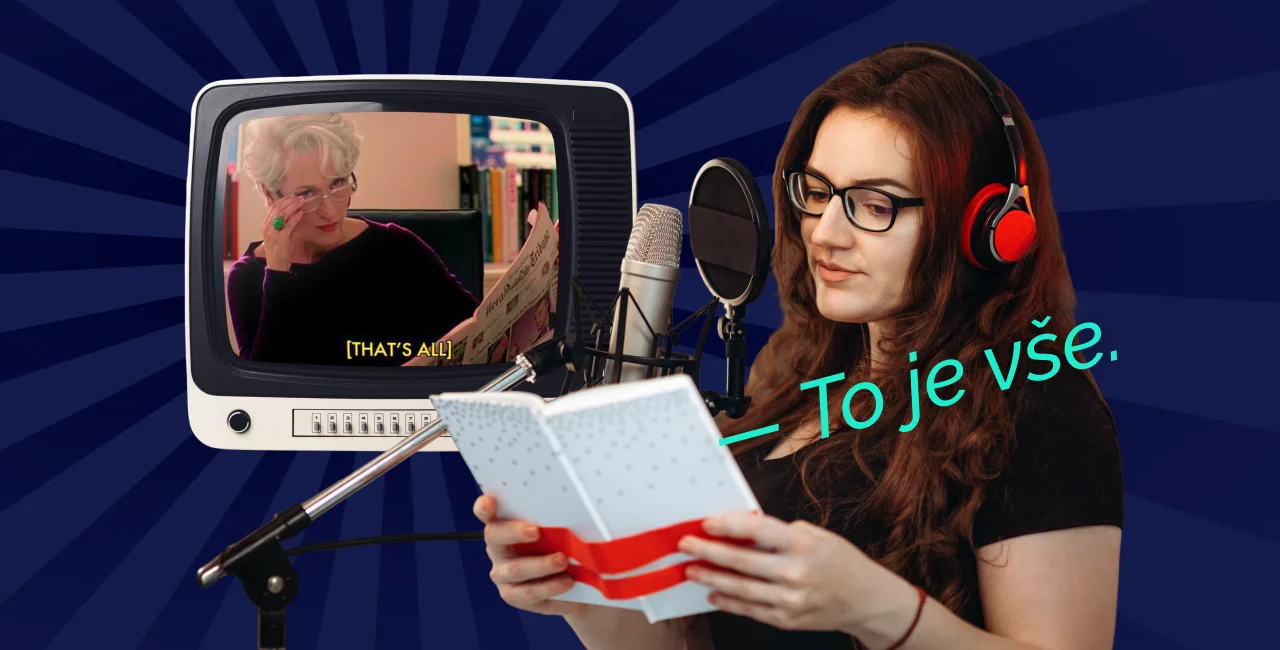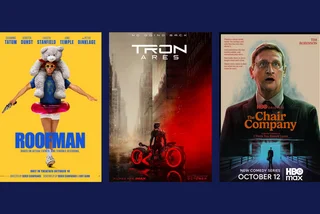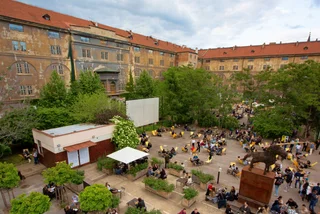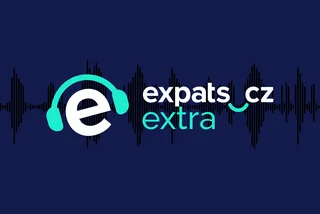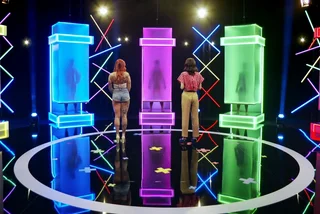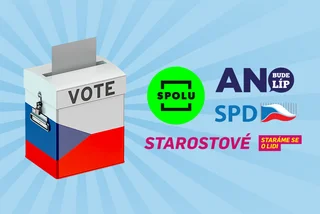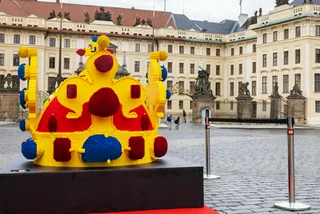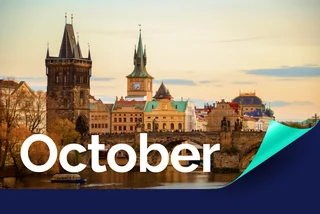If you’ve ever turned on Czech television and heard Joey from Friends or Breaking Bad’s Walter White speaking fluent Czech, you’re not alone in doing a double-take.
While many European countries prefer subtitles, especially in places like the Netherlands or Sweden, where English proficiency is high, Czechia is different. Here, stars like Cate Blanchett and Tom Cruise are fully re-voiced by Czech actors, many of whom are closely associated with specific Hollywood counterparts.
PARTNER ARTICLE
In bilingual households, the dubbing debate runs deep. Why, for instance, is my husband watching The Simpsons dubbed into Czech when the original version is just a click away and undeniably superior? And honestly, I implore my children to explain, how anyone can fully grasp the emotional depth of Johnny the Gorilla in Sing without hearing his Cockney accent?
Seeing familiar Hollywood faces paired with local voices is one of the more jarring aspects of Czech pop culture, and those in the know say it’s here to stay.
Czech dubbing origins: A tool of state censorship
Czechia’s dubbing culture began during the post-war communist period. From 1948 until the Velvet Revolution in 1989, state authorities closely monitored imported films for ideological content. Subtitles conveyed too much: direct translation, original phrasing, and cultural nuance.
Dubbing, however, allowed for more control. Scripts could be softened, revised, or rewritten to fit the state’s agenda. Over time, a strong dubbing infrastructure developed, featuring studios, trained voice actors, and a skilled workforce dedicated to making foreign content feel local.

By the time communism ended, Czech audiences had grown accustomed to hearing foreign media in their own language and had formed attachments to the voices delivering them.
Czech translator Martin Michl said in an interview with Aktualne.cz that dubbed performances aren’t just familiar to many viewers; they are often favored.
“It’s a certain comfort when you can actually just glance at the TV here and there and watch the movie passively while doing something else. I sometimes feel that way, and I'm certainly not alone in that,” Michl remarked.
Infamous dubbing flubs
Despite its cultural importance, Czech dubbing in the 1990s was riddled with infamous blunders caused by tight budgets and rushed work. In Ricochet (1991), the phrase “You must have lots of balls” was translated literally as physical balls (míče, as in sports equipment), leading to unintentional comedy.

In Sean Connery-Nicholas Cage action vehicle The Rock (1996), “Attorney General” was awkwardly treated like a person’s name—first name Attorney, last name General. In The Last Boy Scout (1991), Antonín Navrátil dubbed both Damon Wayans and the villain, before another actor suddenly replaced him late in the film.
Even Harrison Ford’s Indiana Jones was voiced by different actors across the series. These quirks remain nostalgic reminders of Czech dubbing’s chaotic, DIY past.
Language proficiency and dubbing: An ongoing debate
The appeal is not just emotional; it’s practical. According to the Czech Statistical Office, about half of Czech adults aged 18 to 64 report being able to speak English. However, fluency decreases significantly among older generations.
While nearly 90 percent of 18–24-year-olds report some level of English proficiency, only 19 percent of those aged 60–69 do. About 45 percent of the entire population does not speak any foreign language.
Calls to reduce dubbing in favor of subtitling frequently appear online, often linked to hopes for better language education. But for now, these voices remain in the minority.
“Czechs appreciate quality dubbing, which we know how to do,” Michl said. “There are so many ways to learn foreign languages that I don’t think we need to shift from dubbing to subtitling.”
Streaming and AI: Challenges to traditional dubbing
The media landscape is changing, though. With the rise of Netflix and other streaming platforms, viewers have access to more language options (and content) than ever. Many are choosing subtitles, especially younger Czech users who see original-language viewing as both entertainment and a learning tool.
Despite the trend, data from Lupa.cz shows that about two-thirds of Czech streaming users still prefer dubbed content. The next most popular option is watching in the original language with Czech subtitles, an especially strong choice among younger viewers.
Another disruptor to Czechia’s dubbing culture is artificial intelligence.
New tools like Rask.ai can quickly generate multilingual voice tracks at a fraction of traditional costs. This technology promises more flexible dubbing workflows, greater accessibility for visually impaired users, and faster turnaround for global releases.
“Dubbing is becoming an outdated practice in today’s globalized and fast-evolving media landscape,” says Petr Janaš, a media consultant writing on Medium. However, he warns that while AI can mimic tone and phrasing, it struggles with nuance, particularly humor, irony, or cultural subtext.
The future looks dubbed
For now, Czech dubbing remains a cultural staple, though experts like Janaš predict a hybrid future: AI for speed and scale, human performers for depth and artistry.
The question isn’t whether dubbing will disappear, but how it will evolve—and who will be the next voice, not face, of hits like Squid Game or Bridgerton.












 Reading time: 4 minutes
Reading time: 4 minutes 